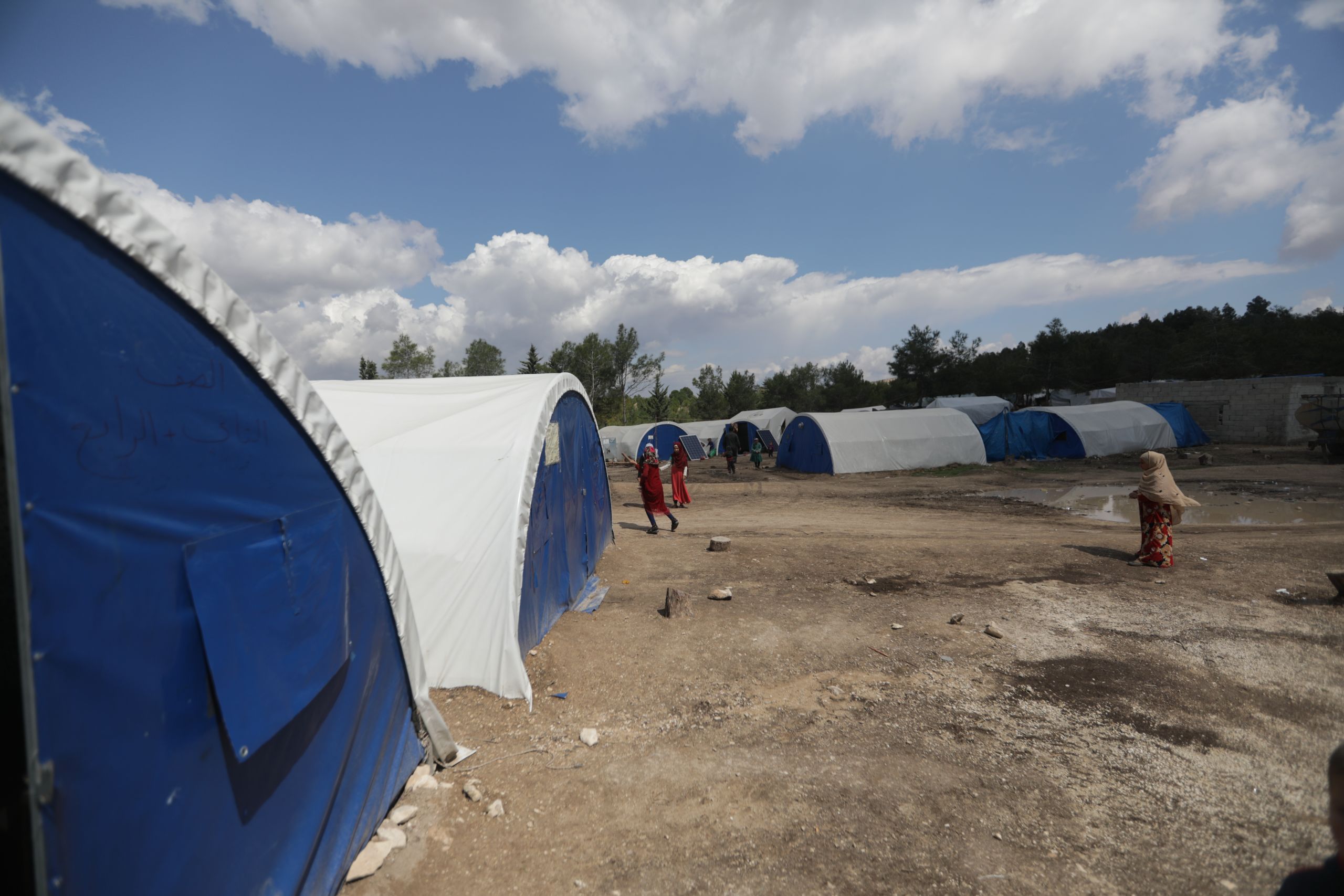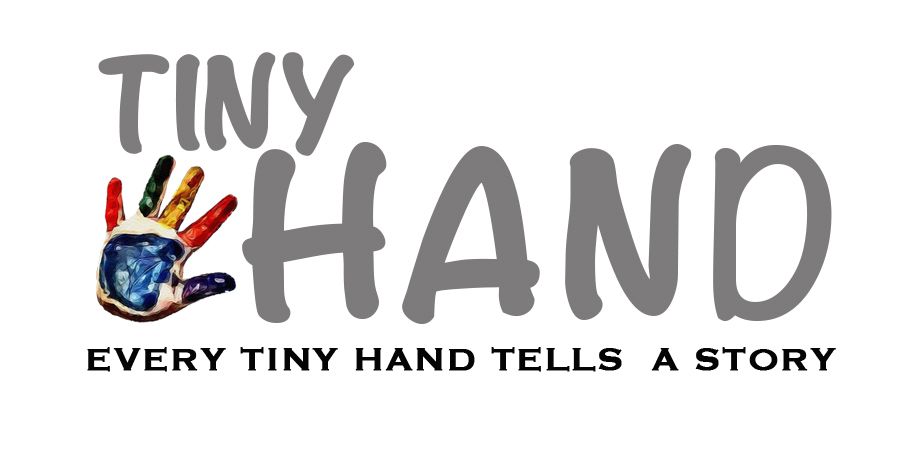Bathing is a “luxury”!
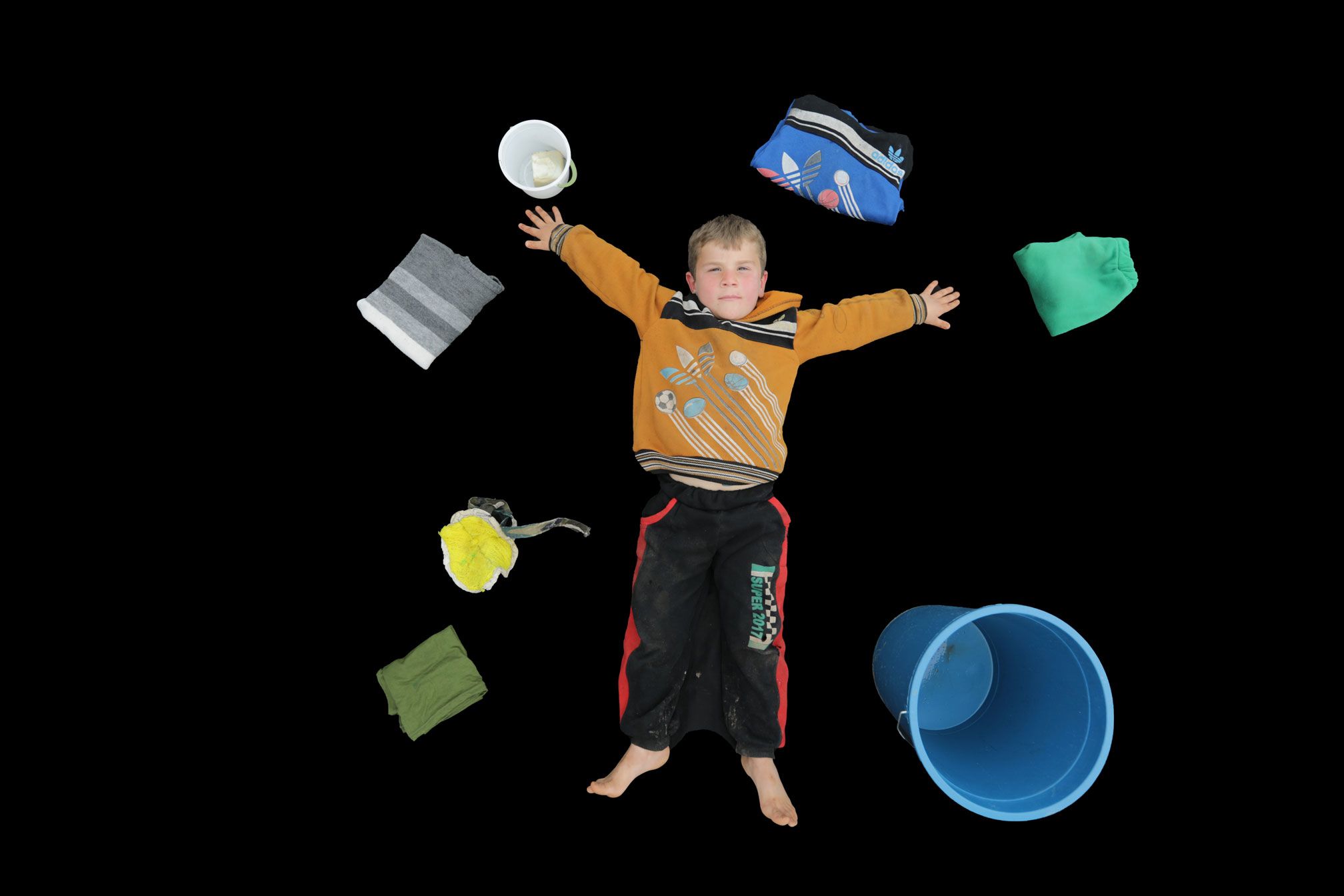
Amid the fields and on the hillsides of northwestern Syria, makeshift camps are lined up where you have to forget about the protective measures recommended by the World Health Organization (WHO) against the novel coronavirus.
While washing one’s hands frequently and maintaining social distancing are the least of such measures, it is impossible to implement them in these white or blue tents where more than 1 million refugees live deprived of water.
In most cases, around 13 persons live in a single tent without any water supply.
If washing one’s hands frequently is highly recommended, the families we have met see bathing a sort of ‘luxury’ and a very demanding task.
But why?
Here is our detailed answer:
The First Daunting Task
Filling a bucket of water
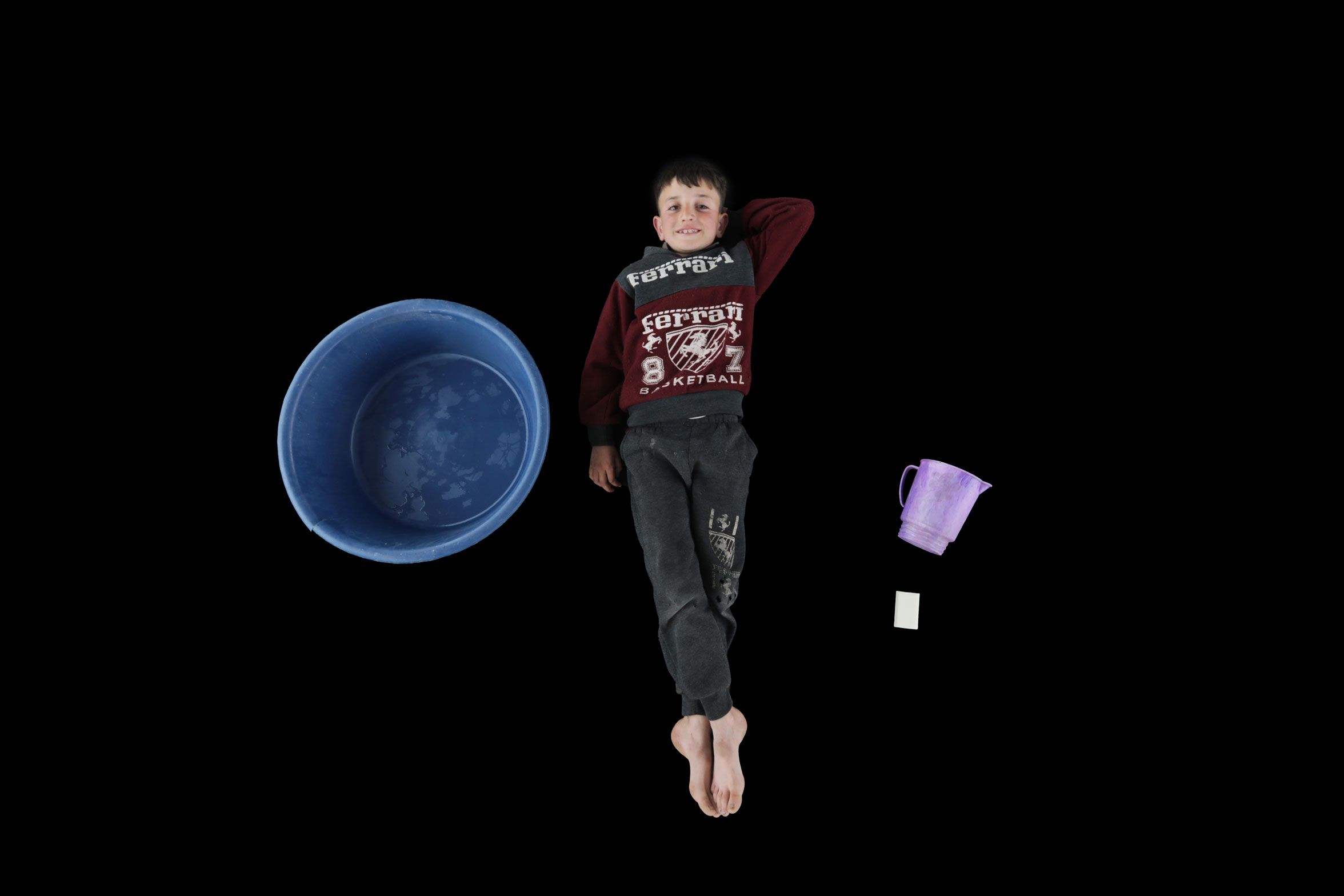
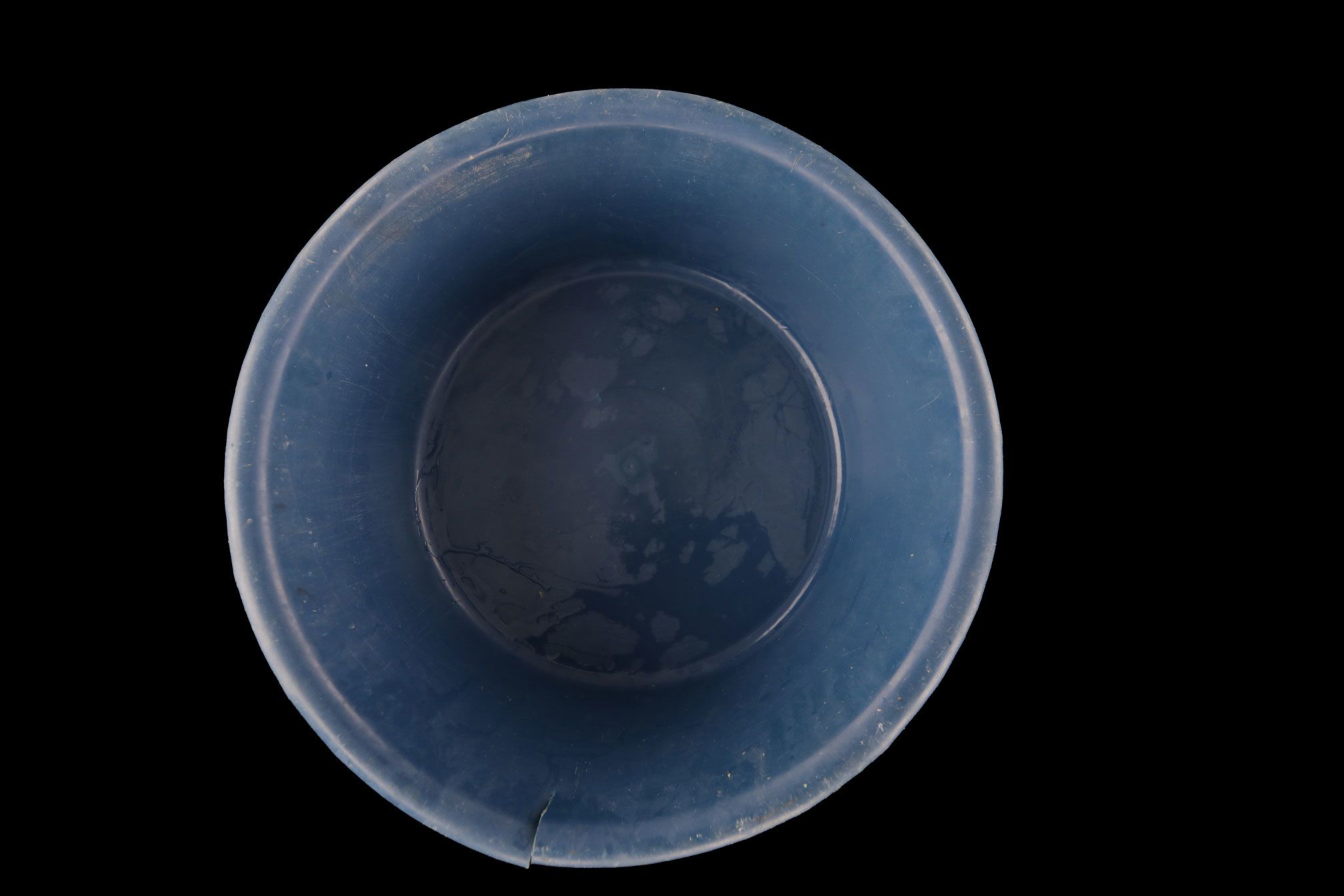
blue bucket
blue bucket
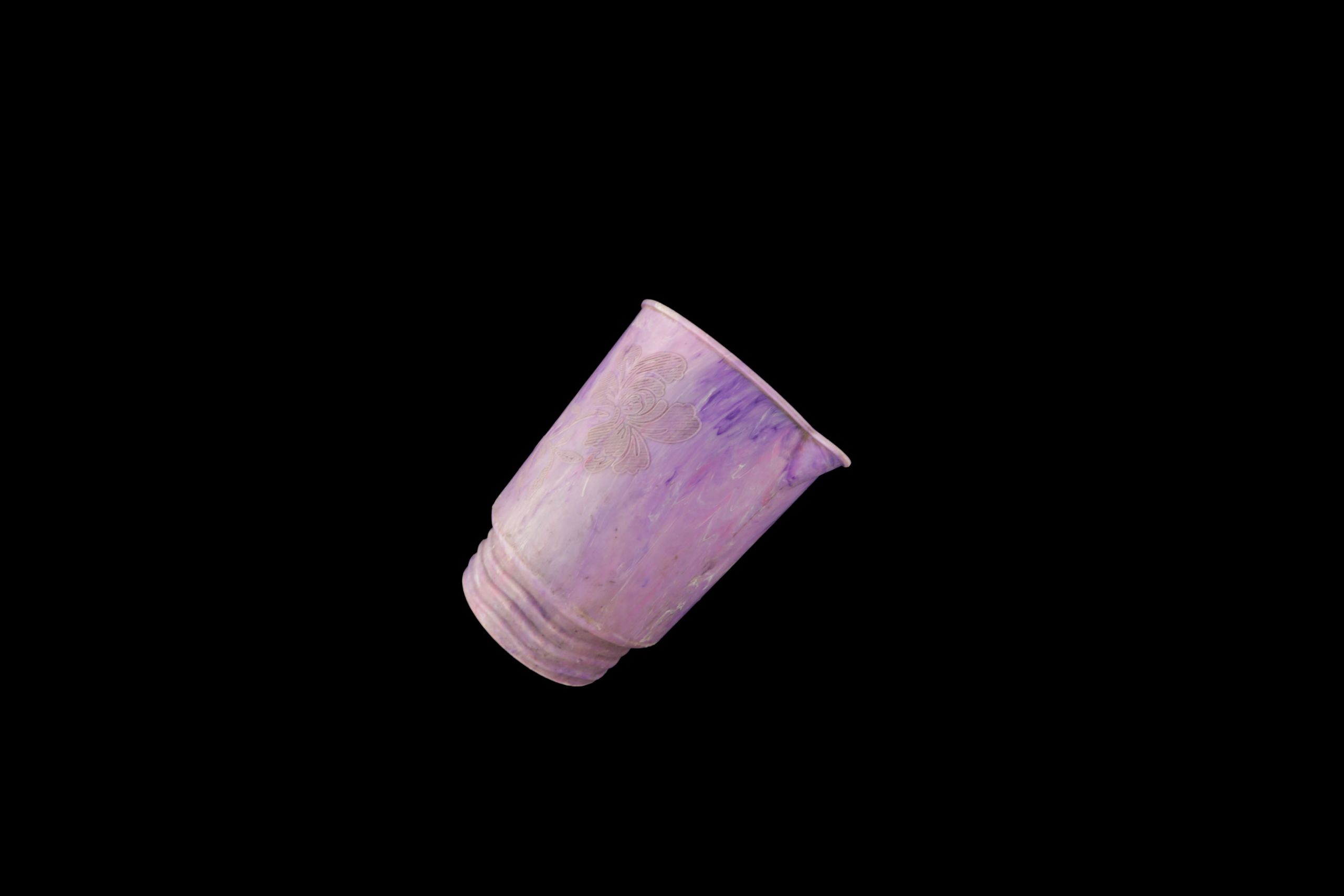
jug
jug
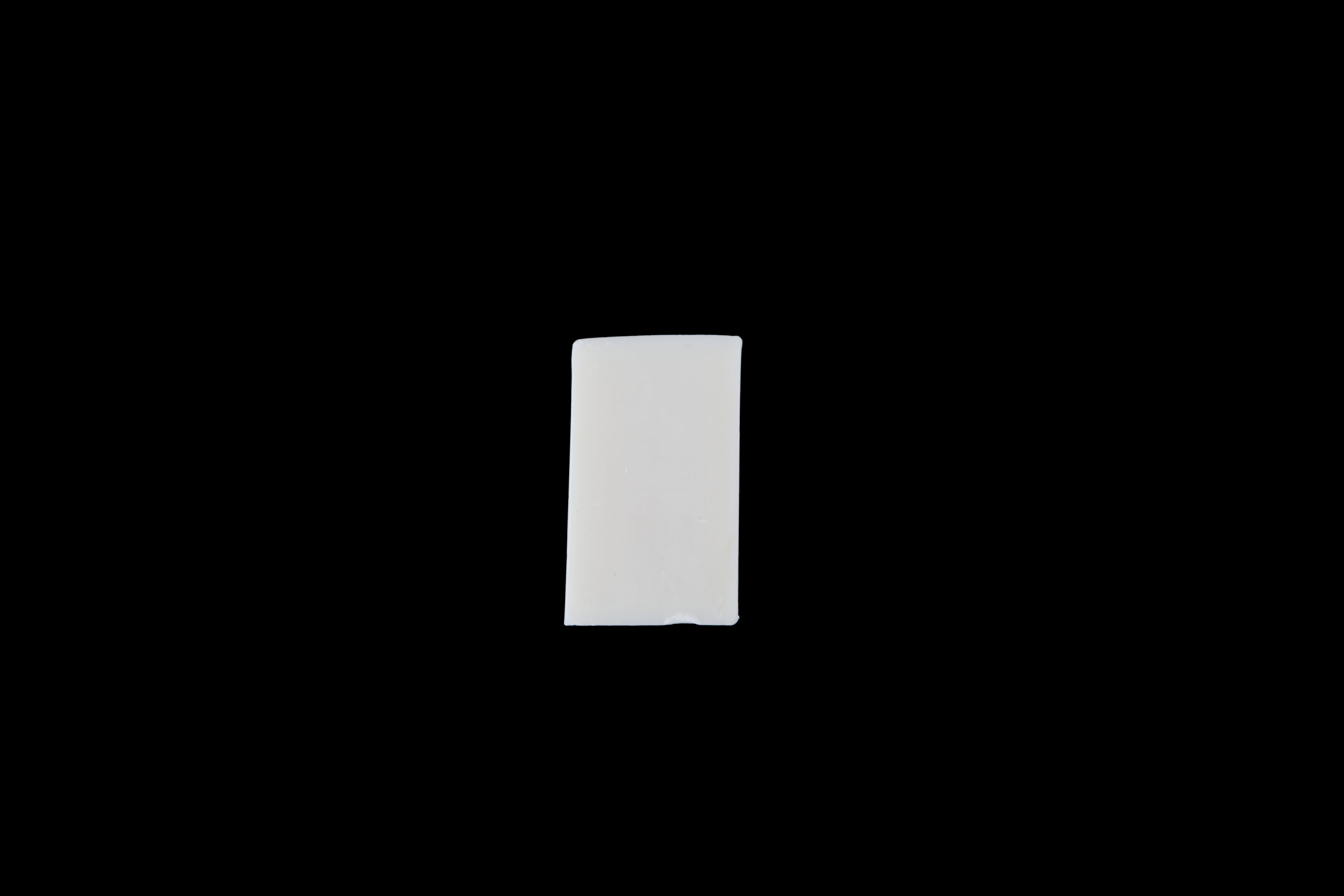
Soap
Soap

Mohammad/ 9 Years
Mohammad/ 9 Years
It was 8:00 am when we met with Um-Khalid standing at the doorstep of her tent in Azaz district in northern Syria.
She was holding a ripped blue bucket while waiting for her 9-year-old child Mohamed. At last, Mohamed went out with a desperate look on his face.
“Why do you look so depressed?” we asked the kid.
“It’s Thursday and I have to take a bath,” he replied.
Um-Khalid chose one day a week to bathe her children because water is very scarce and carrying it from the central tanks to the tent is a very demanding job, especially since she is a widowed mother with no man to give her a helping hand.
Around seven tents away from hers, we reached the camp’s main water tank. We stood there waiting with the refugees; the tank has been empty for two days and they have been promised that it will be filled up today!
And it really happened.
After Um-Khalid filled her water bucket, she came back to her tent. “This bucket should be enough for bathing both Mohamed and Ahmed!” she muttered placing it aside.
That is why Mohamed was depressed. His share of bathing water was too little.
What is worse is that he had to take his shower inside the tent and on the same spot where he sleeps, eats, studies, and plays.
“My mother puts a plastic bag on the ground and puts the bucket on it before I start taking my bath,” Mohamed told Tiny Hand.
When bathing is over, they throw the waste water outside the tent.
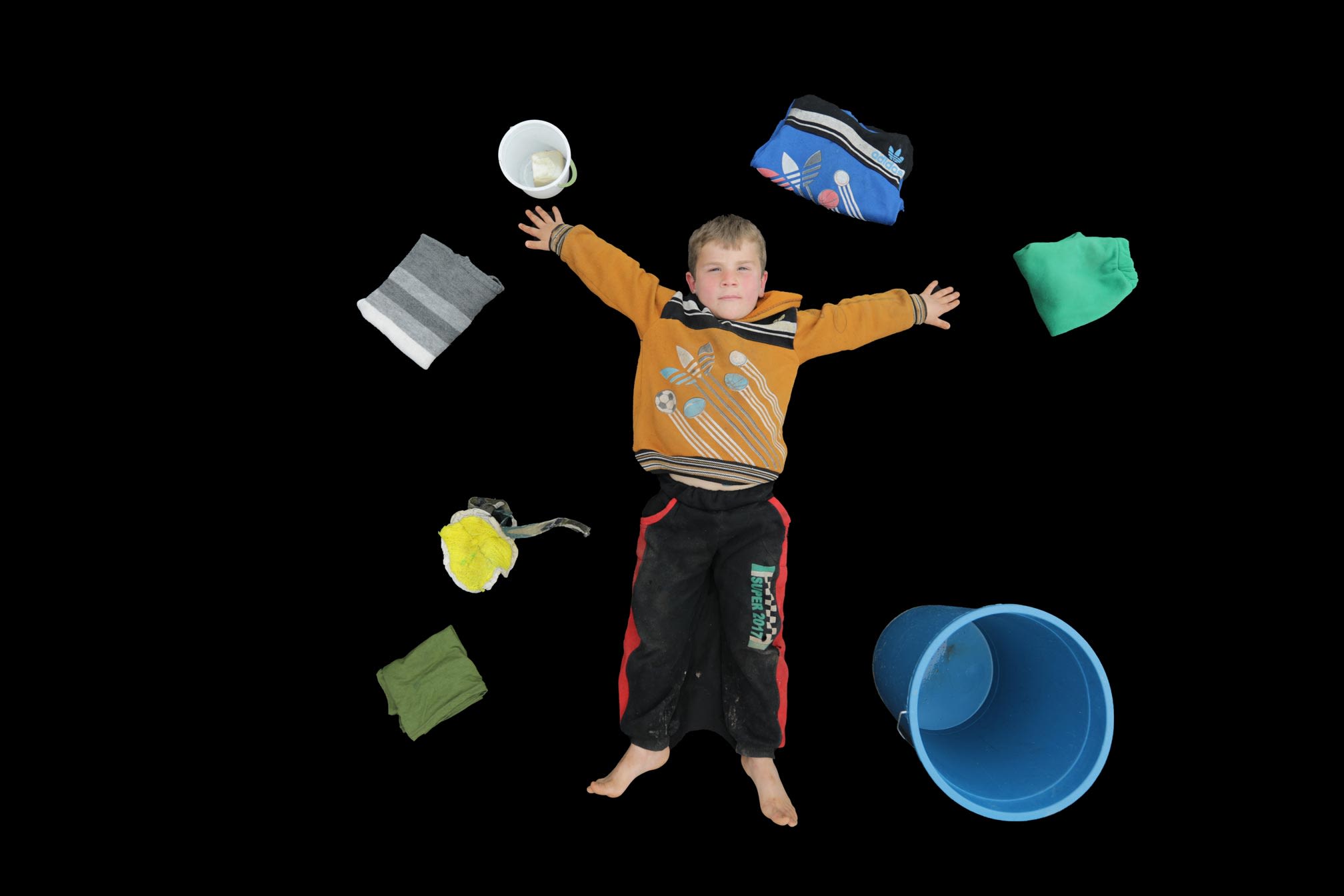
Ahmad/ 6 Years
Ahmad/ 6 Years
As such, taking a bath is neither easy nor satisfactory to Um-Kahlid’s children. So, what about frequent hand-washing as a protective measure against the coronavirus?
The question seemed very strange to the 40-year-old woman. “Look! My children live on the ground and play with earth all the time,” she said, looking around in her tent, “They only eat olive oil and thyme sandwiches. How and from who should I protect them?”
Trying to economize on their water use, the lady said she is not ready to waste the water in washing her children’s hands throughout the day.
According to her, frequent hand-washing “is a sort of luxury or even an exaggeration” in a makeshift refugee camp whose residents view water as a very precious thing that everyone should economize on its use, even amid the Covid-19 threats.
Nevertheless, Mohamed seems indifferent to all of that. Having taken his bath, he feels excited to go out playing with his friends
The Second Daunting Task
Heating the bathing water
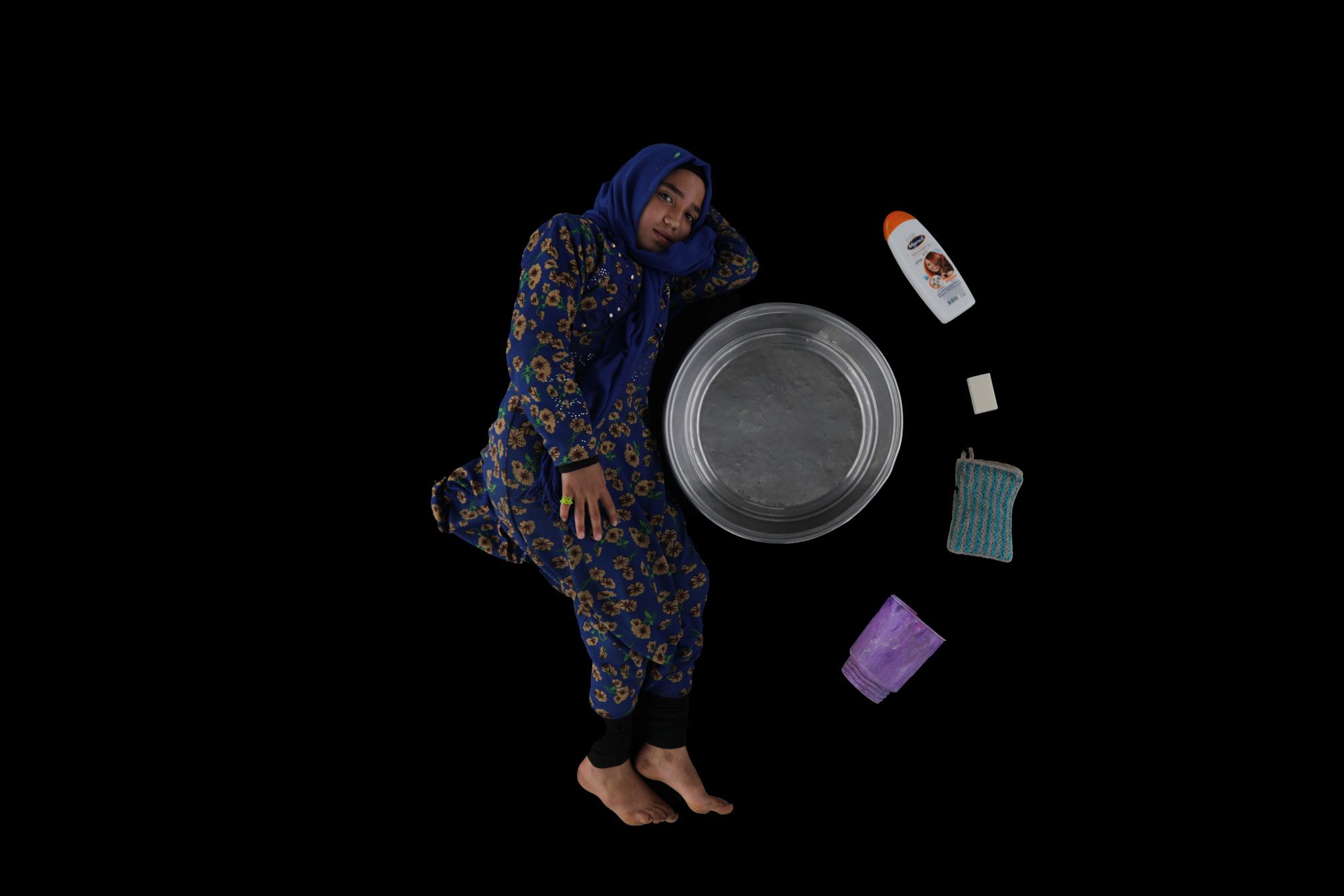
While most of the world’s children spend their time at their homes because of the lockdown imposed by the spread of the Coronavirus, the scene is quite paradoxical in this camp, where children spend their time playing around.
Iman was one of them. She was sitting next to her tent, telling her friends about her house in Maasran, a village they had been displaced from two months ago.
There, for example, the bathroom was completely different as she did not have to take a shower with cold water or, at best, with lukewarm water when they have enough wood sticks for heating the water.
“I take a shower twice a week and every time I remember the bathroom we had in our house,” said Iman, “At that time, we would never think about hot water or the water quantity we need to use during our bath.”
Apart from that, it was astonishing when Iman mentioned the tiled ground of the bathroom her family once had. While it seems a tiny detail, it meant a lot to a child now spending most of her time on earth.
The small stones and earth are everywhere here,” complained Iman, “It is very disturbing and makes you feel dirty all the time.”
She said so before she went on playing with small stones along with her friends. They throw a small stone randomly and the closest one to where the stone fell has to speak about the home she used to have.
The game brings them a lot of fun and heart-breaking feelings as well.
In northwestern Syria, where a million people displaced by the war live in muddy tents and abandoned buildings, the Covid-19 outbreak can become an unspeakable disaster in a devastated region
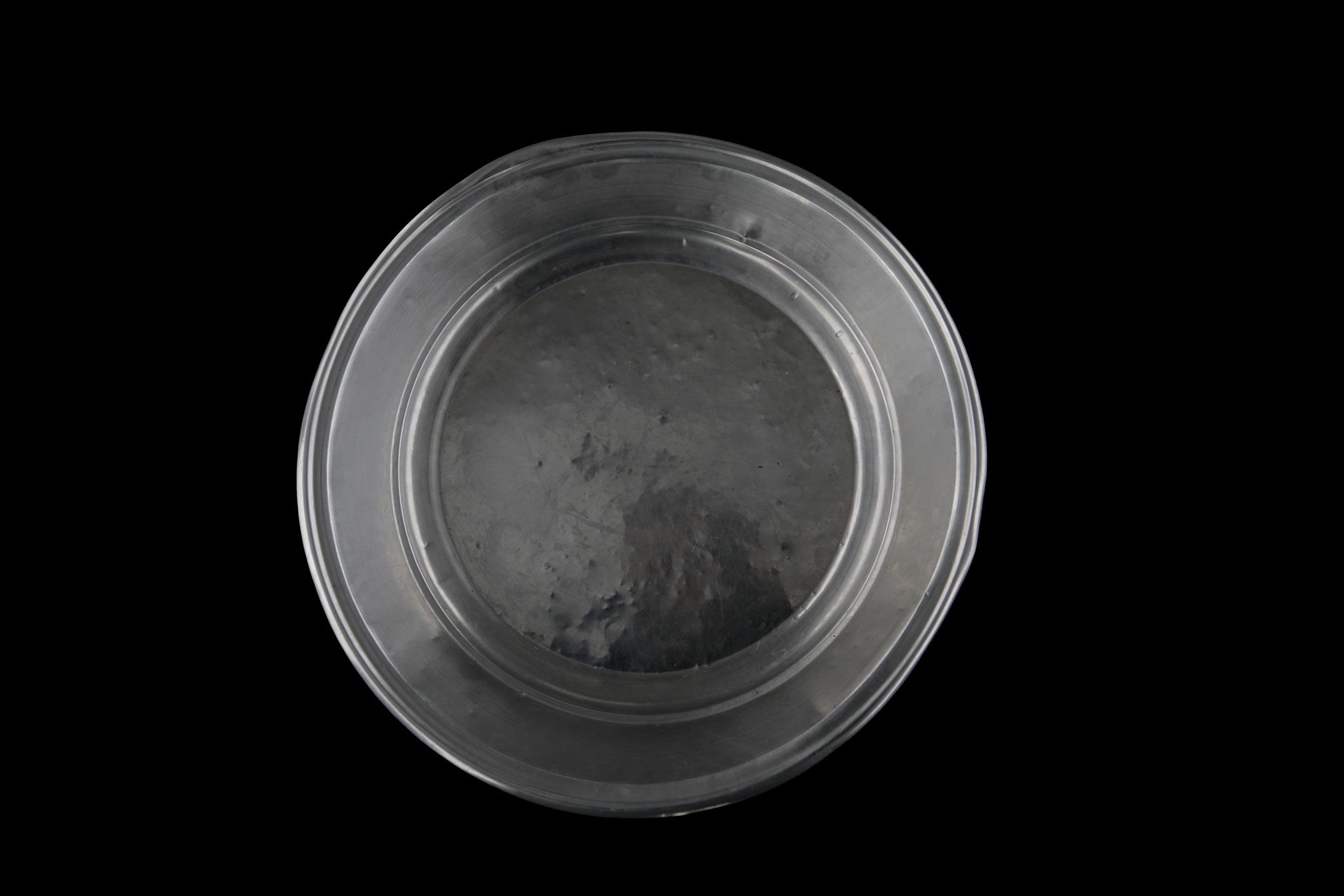
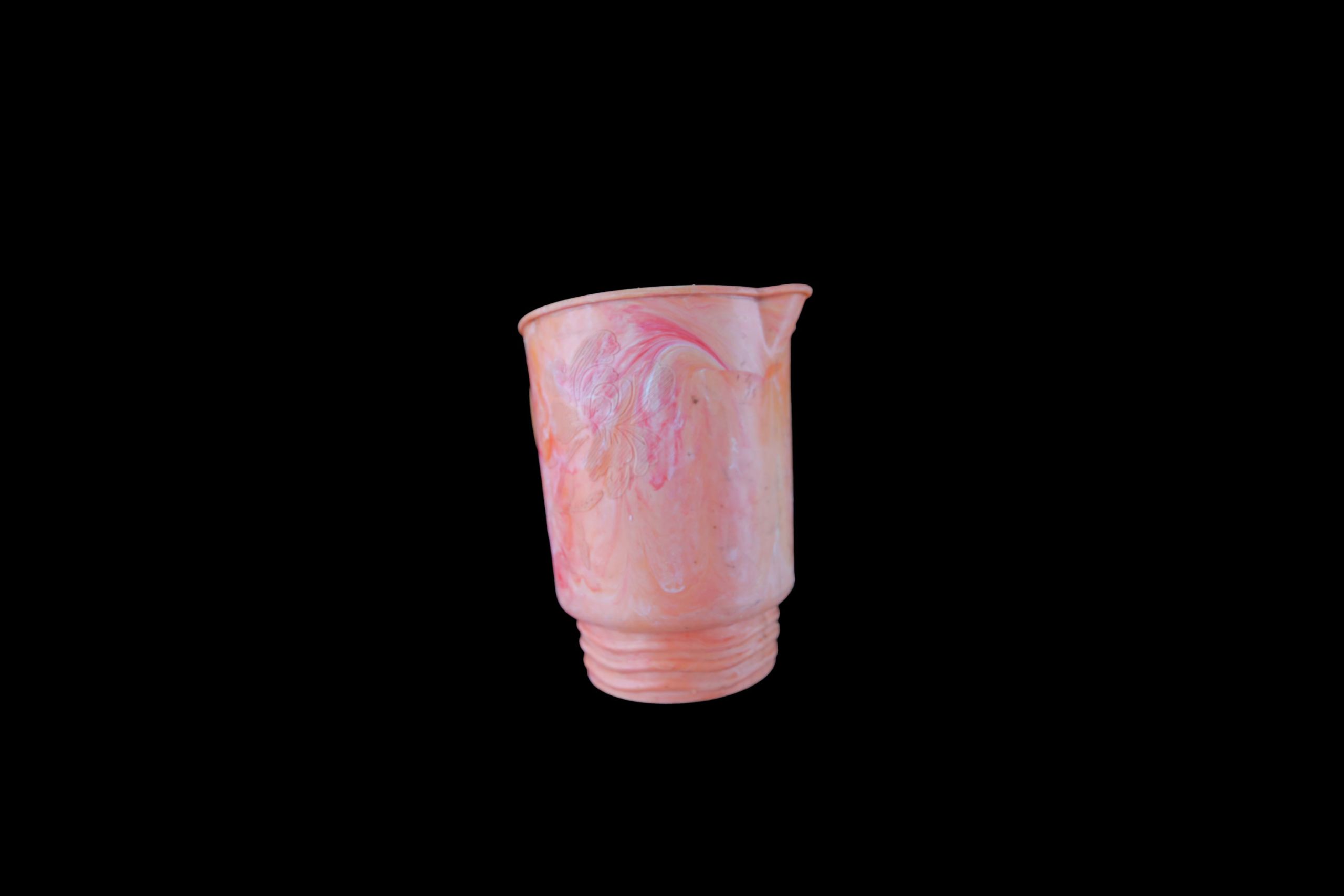
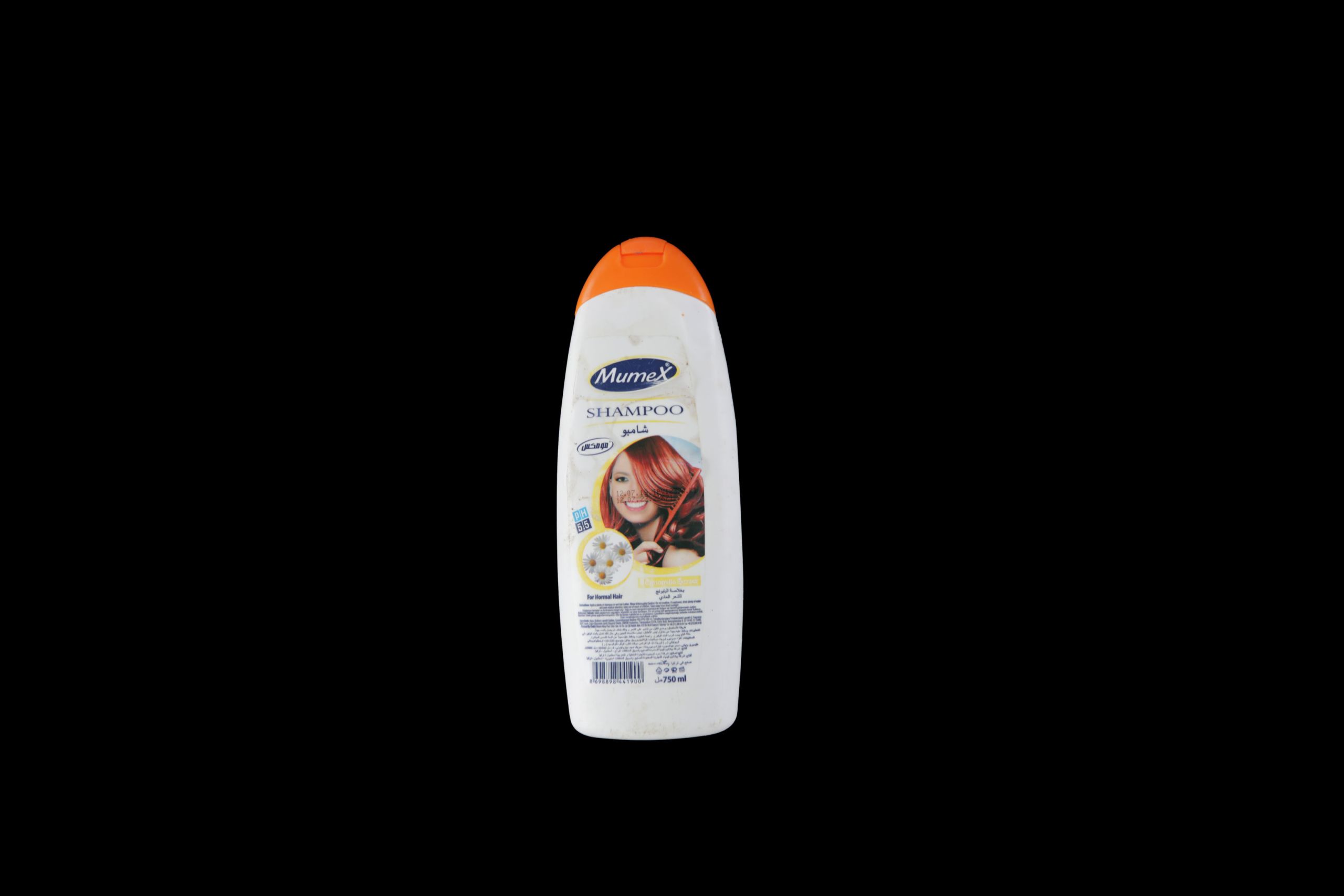
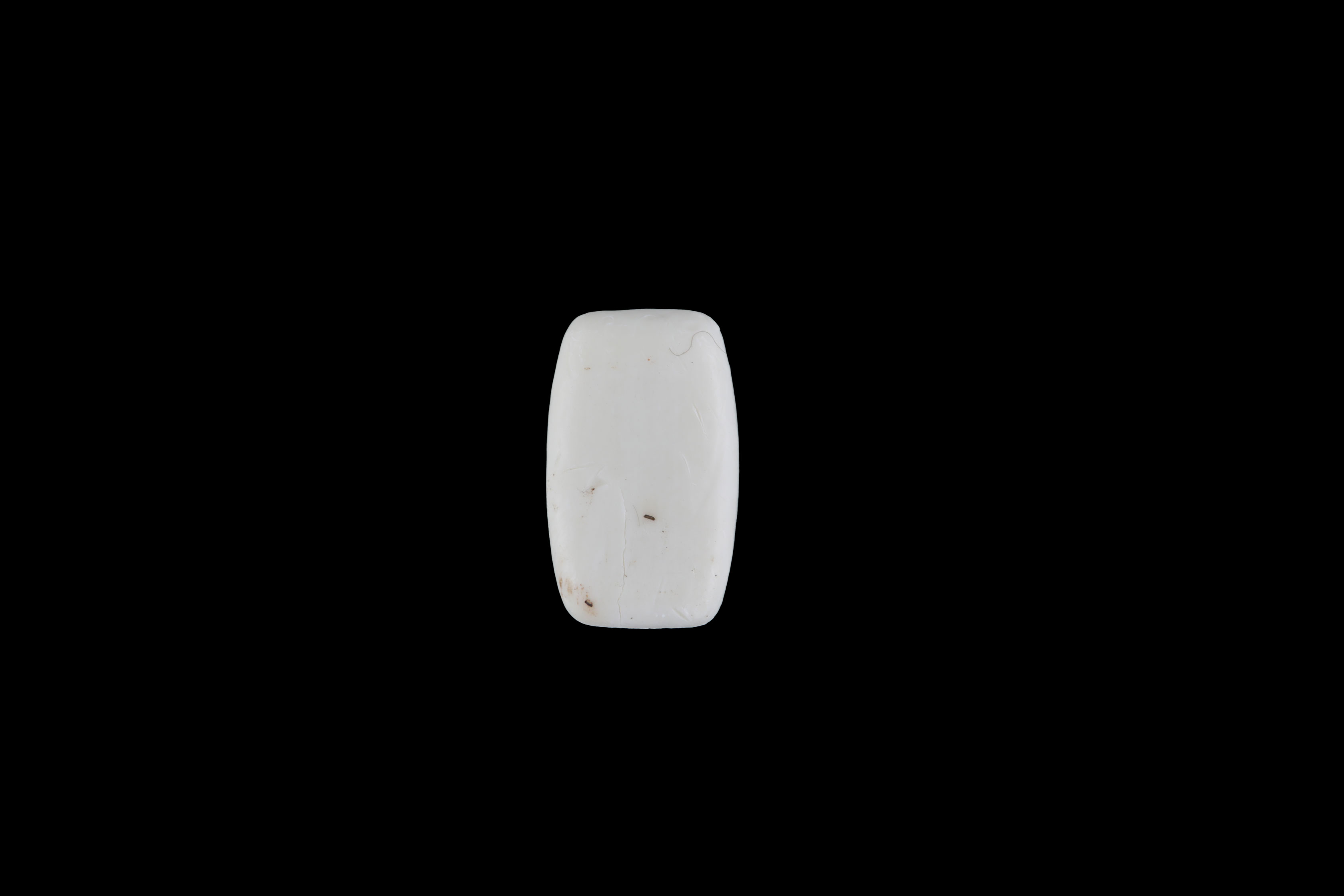

Iman
Iman
The Third and Last Daunting Task
Stretching clothesline through the four seasons
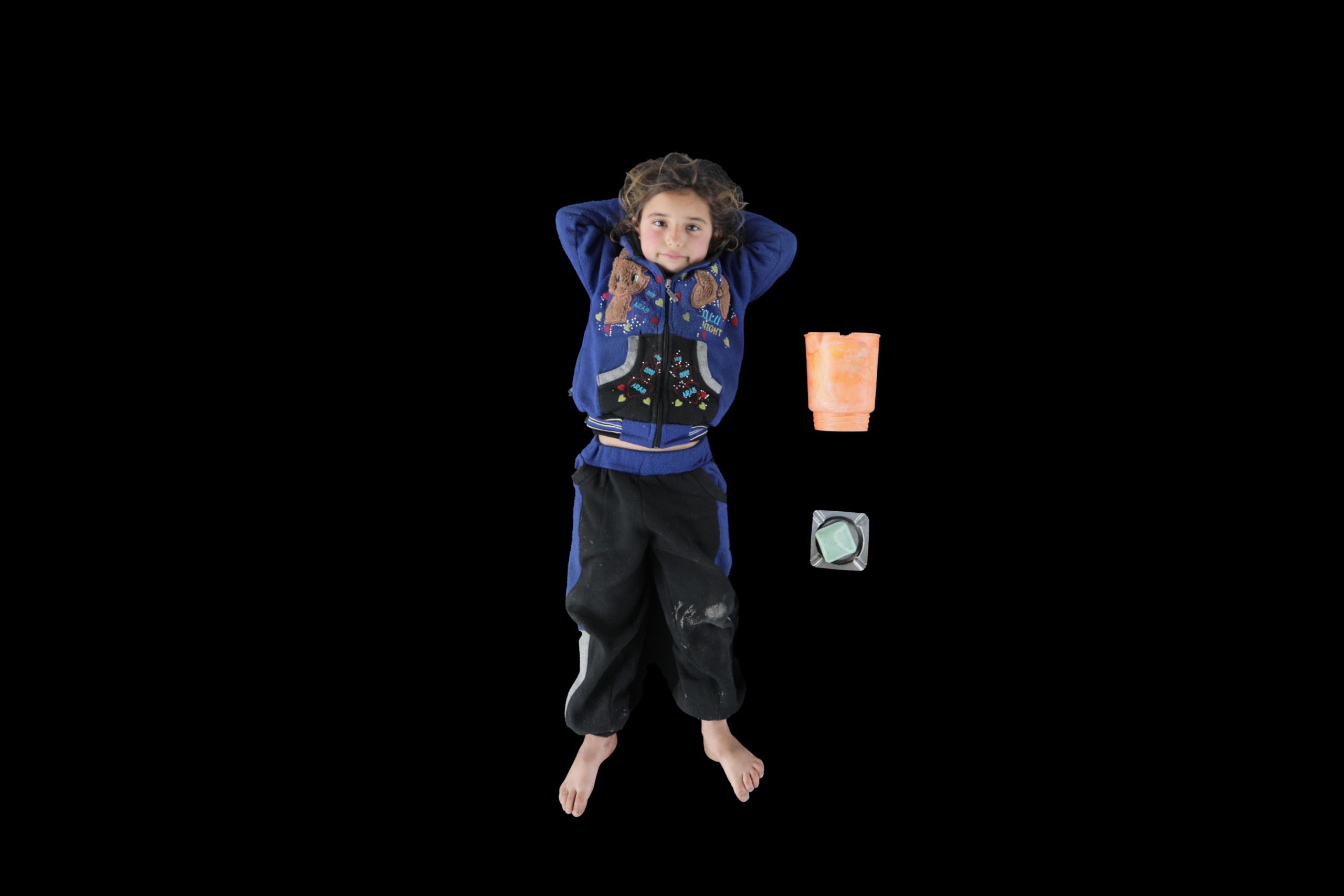
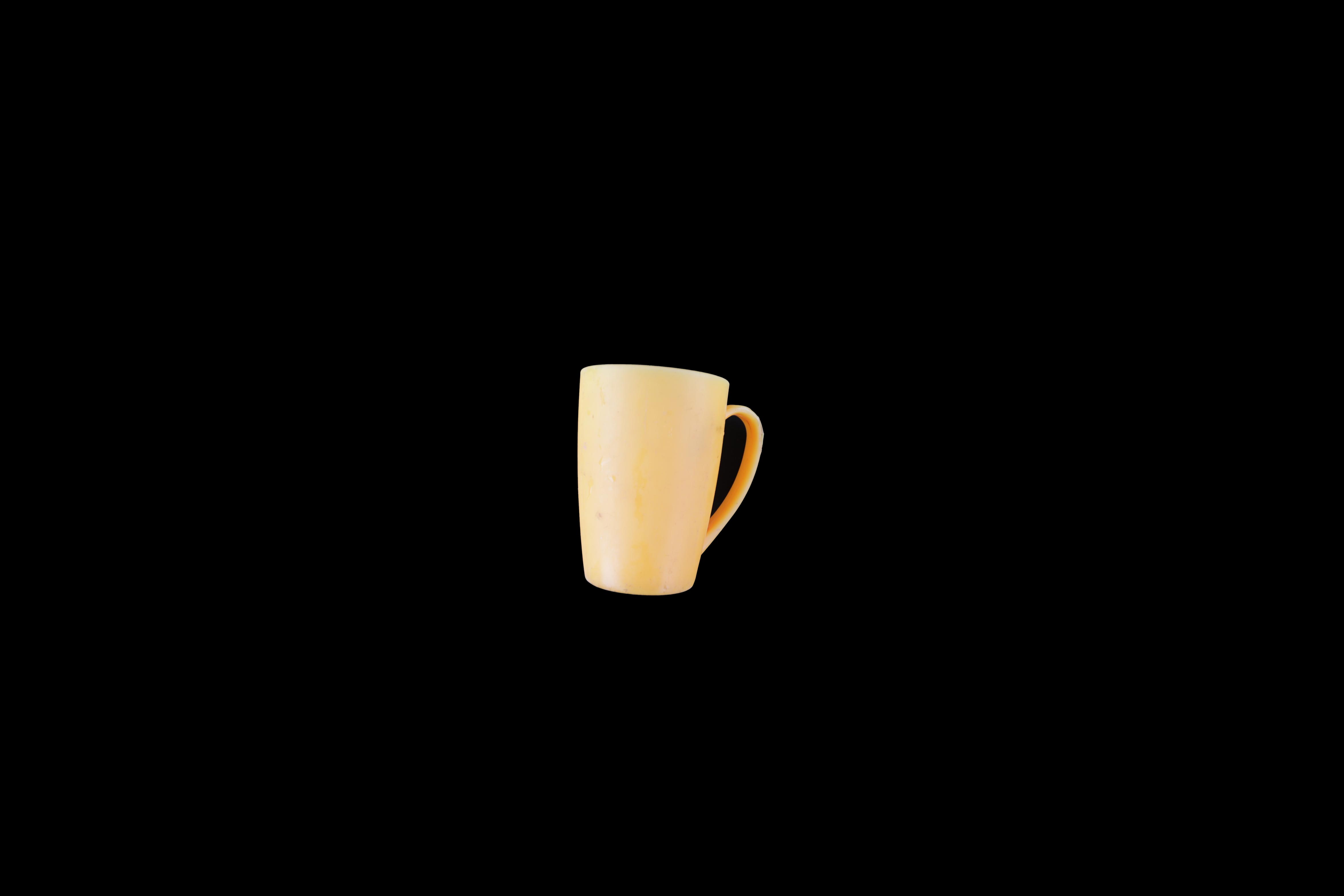
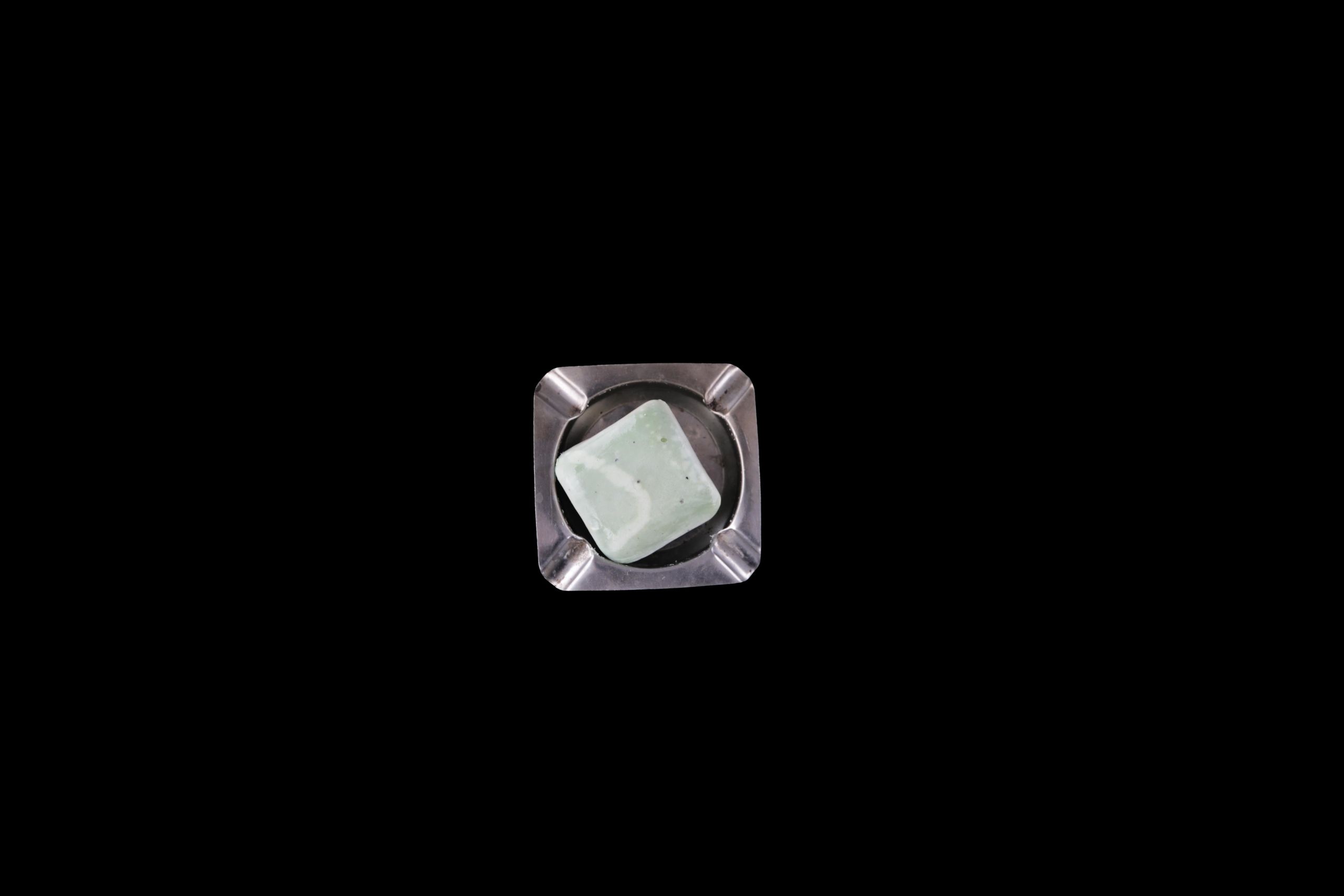

Sanaa/ 6 Years
Sanaa/ 6 Years
After children have their weekly bath and mothers get their share of dirty clothes piles, it is time to wash them using leftover water and washing powders that are often distributed by humanitarian organizations.
However, the problem faced by the four-year-old Ghaith’s mother, who received us in her tent, was to find a place to stretch her clothesline.
Perhaps the answer was clear to us as we were in a tent with a clothesline starched in the middle with colorful clothes hung on it.
The colorful clothes made the tent look very untidy; the carpet was blue and the mats they sleep on were red while the food dishes were green.
“The weather is still cold, so I preferred to spread the clothes inside the tent,” said Ghaith’s mother, “It takes them a long time to dry and we have to suffer from the humidity caused by the clothes in this small closed place.”
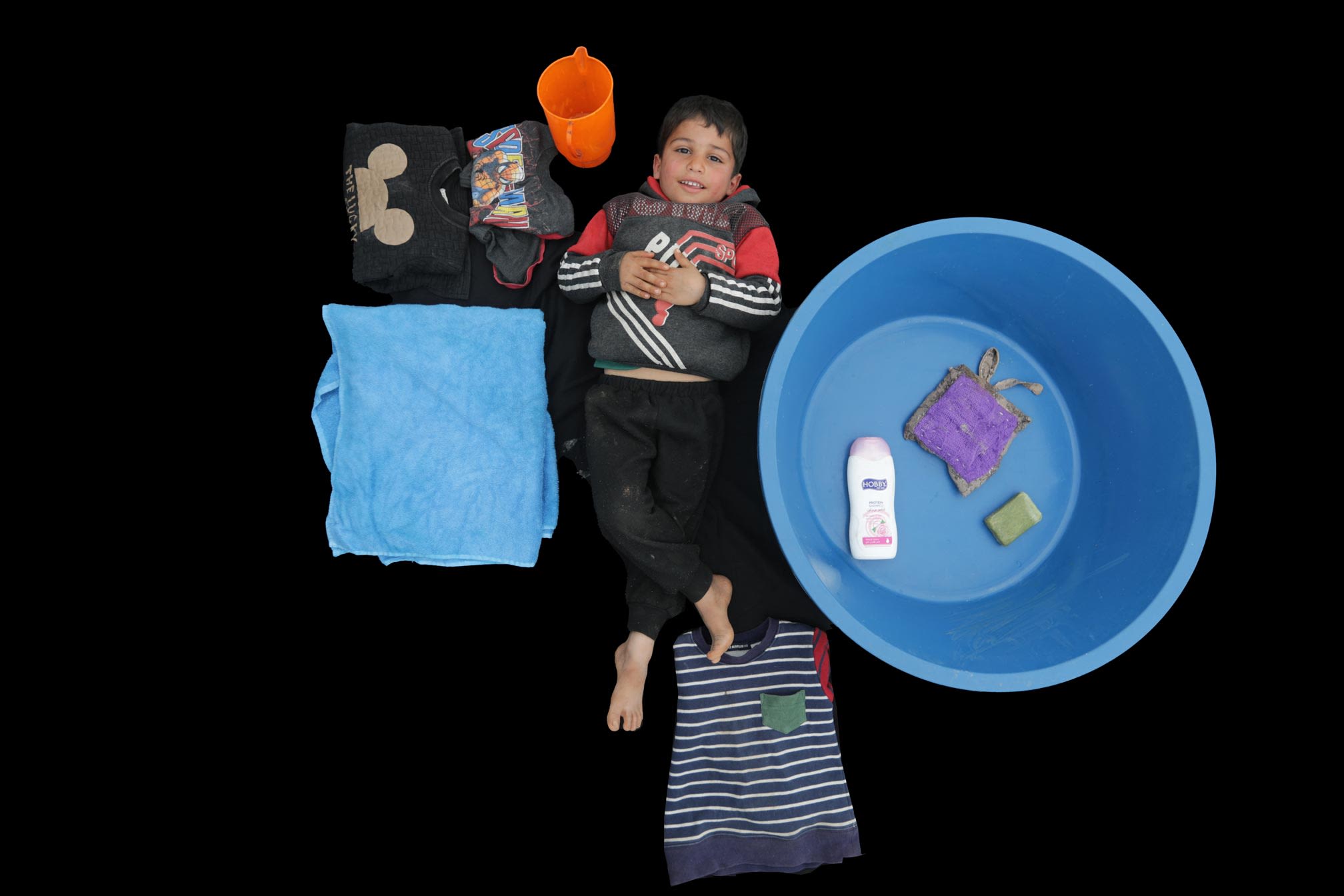
Ghaith/ 4 Years
Ghaith/ 4 Years
For this lady in her 30s, the summer does make a big difference. However, while she stretches the clothesline outside the tent and the clothes dry up more quickly, they got stained by the children playing around, dust clouds and pollen grains, says Ghaith’s mother.
As she spreads the washed clothes in her tent, she told us, “They tell us to take measures to protect ourselves from the coronavirus. But how can we protect ourselves from infection while we are in shortage of basic living requirements? Over the past nine years, we could not find peace; we survive a disaster to find a more dreadful one ahead.”
According to the WHO, more than 84 hospitals and medical facilities in northwestern Syria have either been damaged or destroyed. The hospitals that are still operating lack the necessary medical supplies.
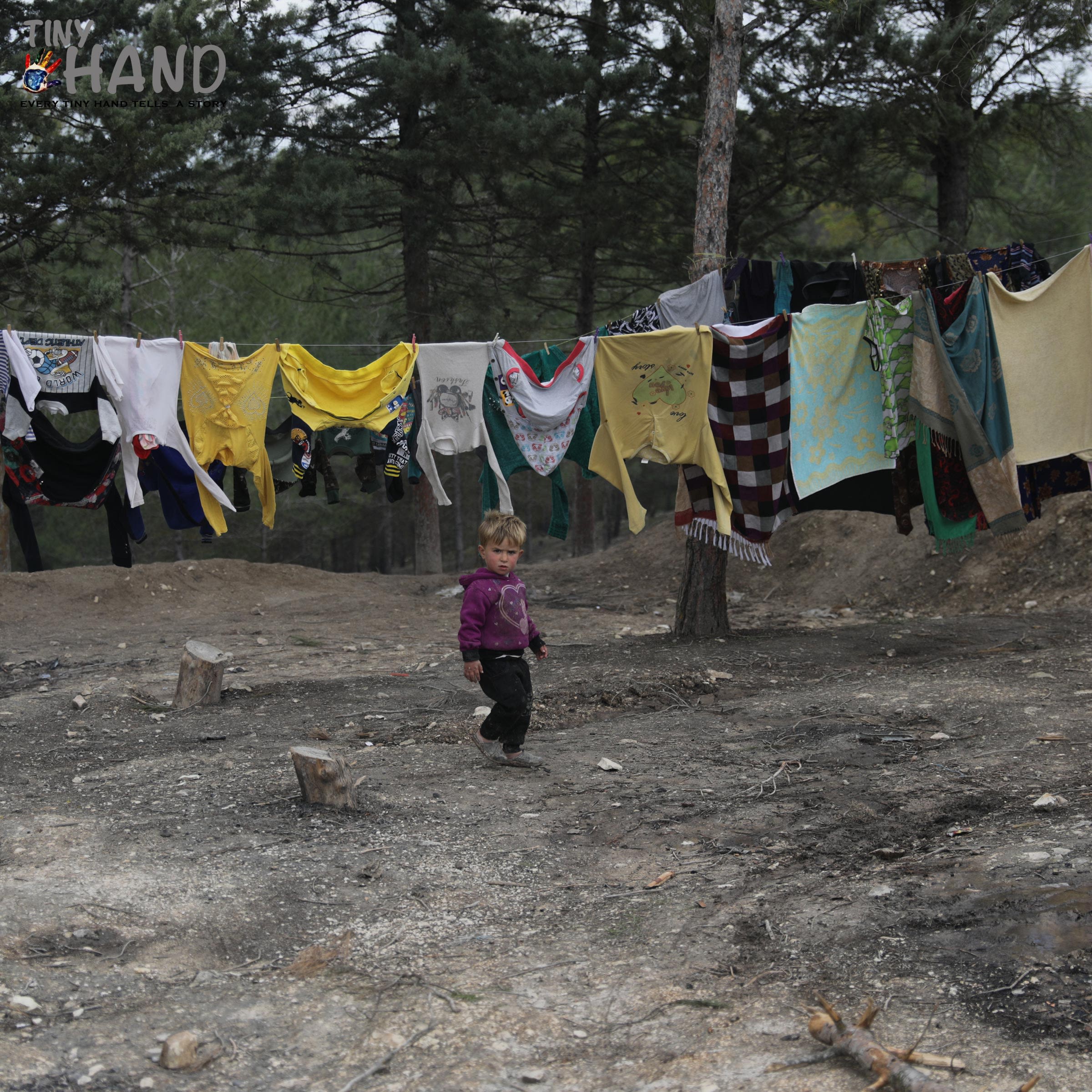
A 5-star refugee camp
The secret is in the toilets
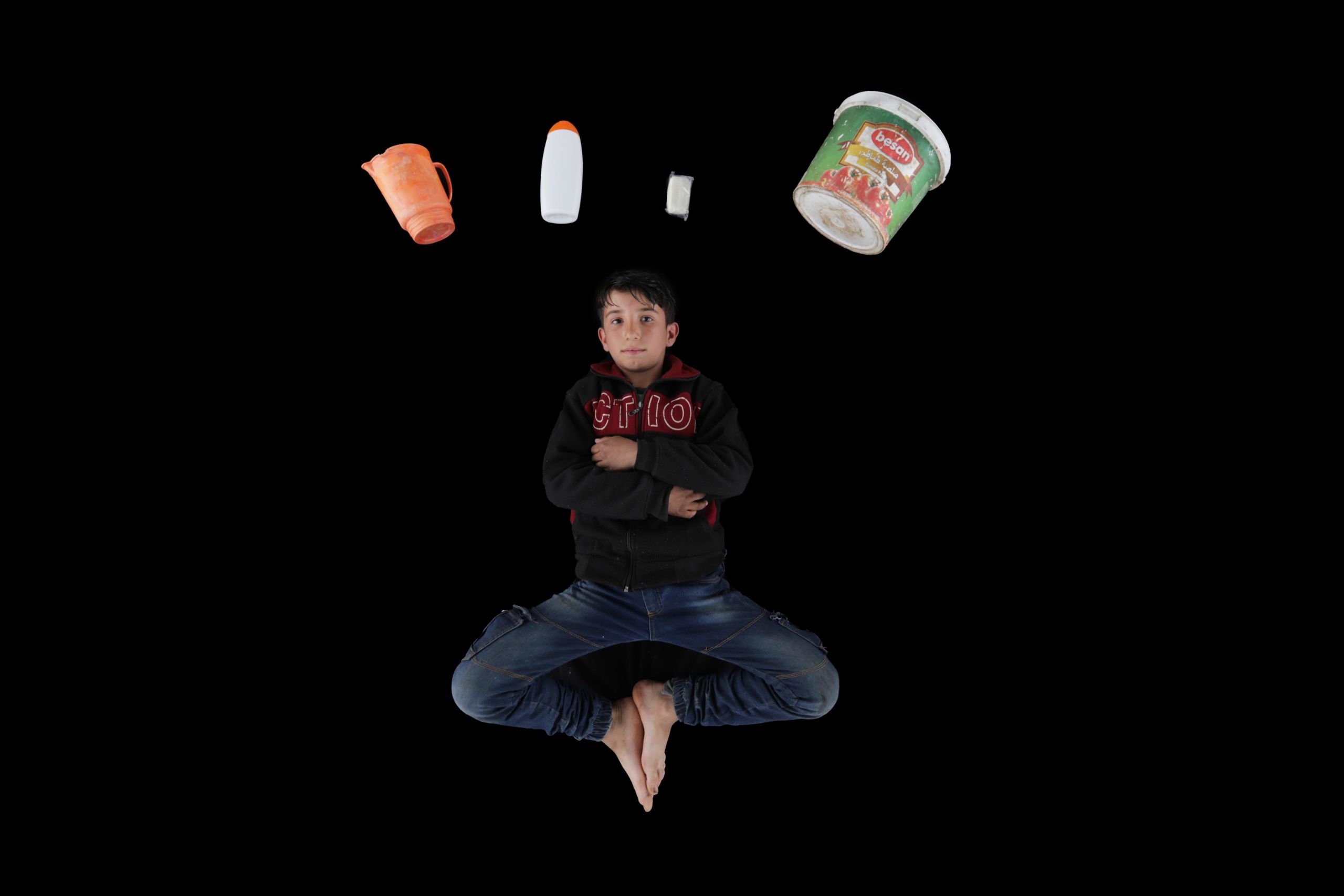
Social distancing and home lockdowns are common measures imposed by most countries to control the spread of the coronavirus.
However, it is totally different in the Syrian refugee camps where children find in shut schools more time to play together among the tents.
Hussain is one of these children. He was playing football with his friends when one of them cried out, “we have got a toilet in the camp.”
One of the camp residents has volunteered to build a communal toilet of five bathrooms to be shared by nearly 50 people. However, to their surprise, there was no place for hand-washing.
Upon asking Hussain where he washes his hands, he said his father had turned a once old plastic food package into a basin to wash their hands in; the same bucket they use to carry bathing water to the tent. “My father stressed that we must wash our hands before and after we have our meals and after we finish playing to protect ourselves against the coronavirus,” Hussain told Tiny Hand.
“Do you know what coronavirus is?” we asked him.
“It is a tiny thorn-like disease,” replied the 9-year-old boy, “It can enter our bodies and kill us. To protect ourselves, we have to wash our hands with soap five times a day!”
However, what matters now is the new communal toilet, which one resident joked about saying it had turned the camp into “a five-star one”, unlike other makeshift camps where sewage water spills over roads and everywhere.
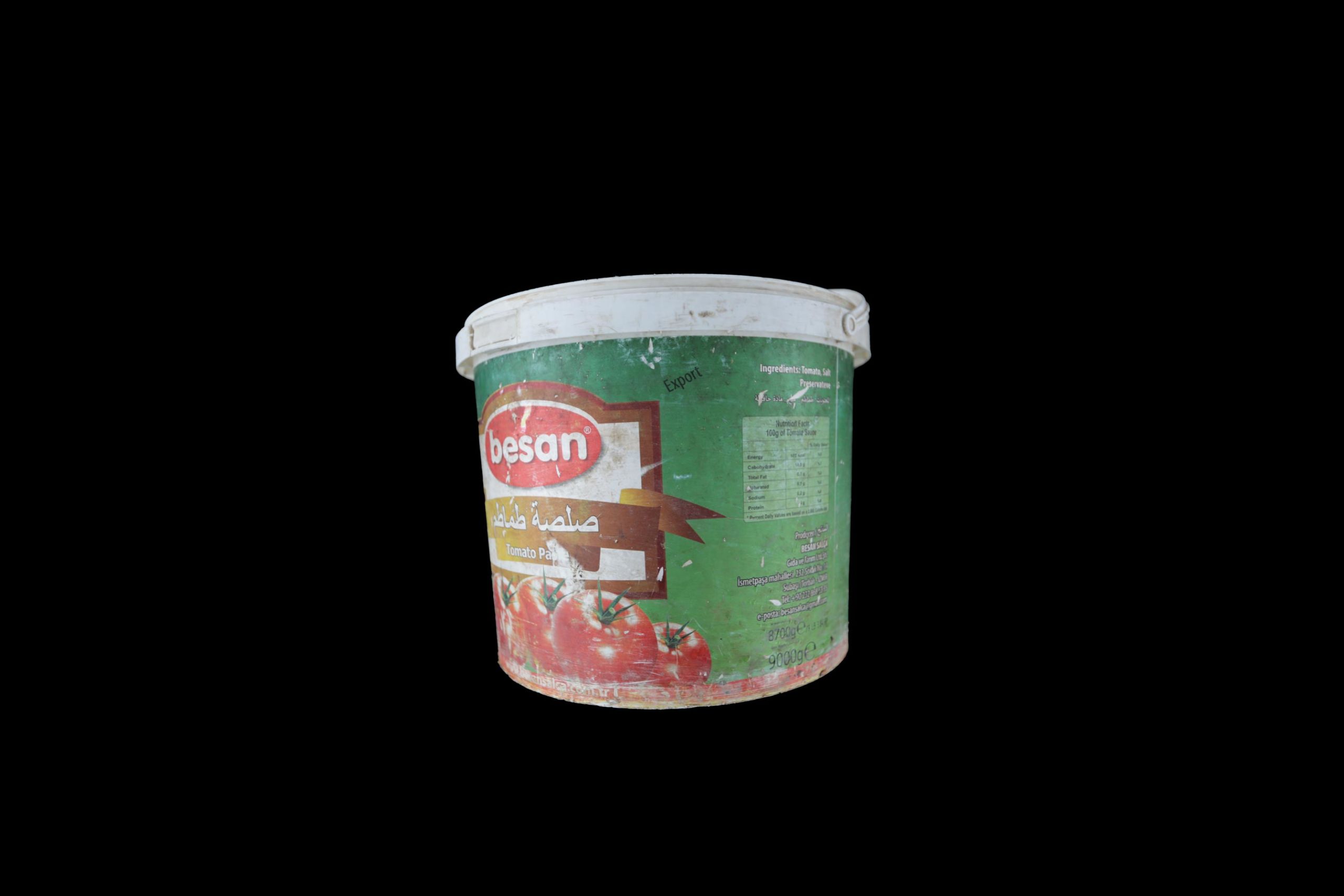
a plastic food package
a plastic food package
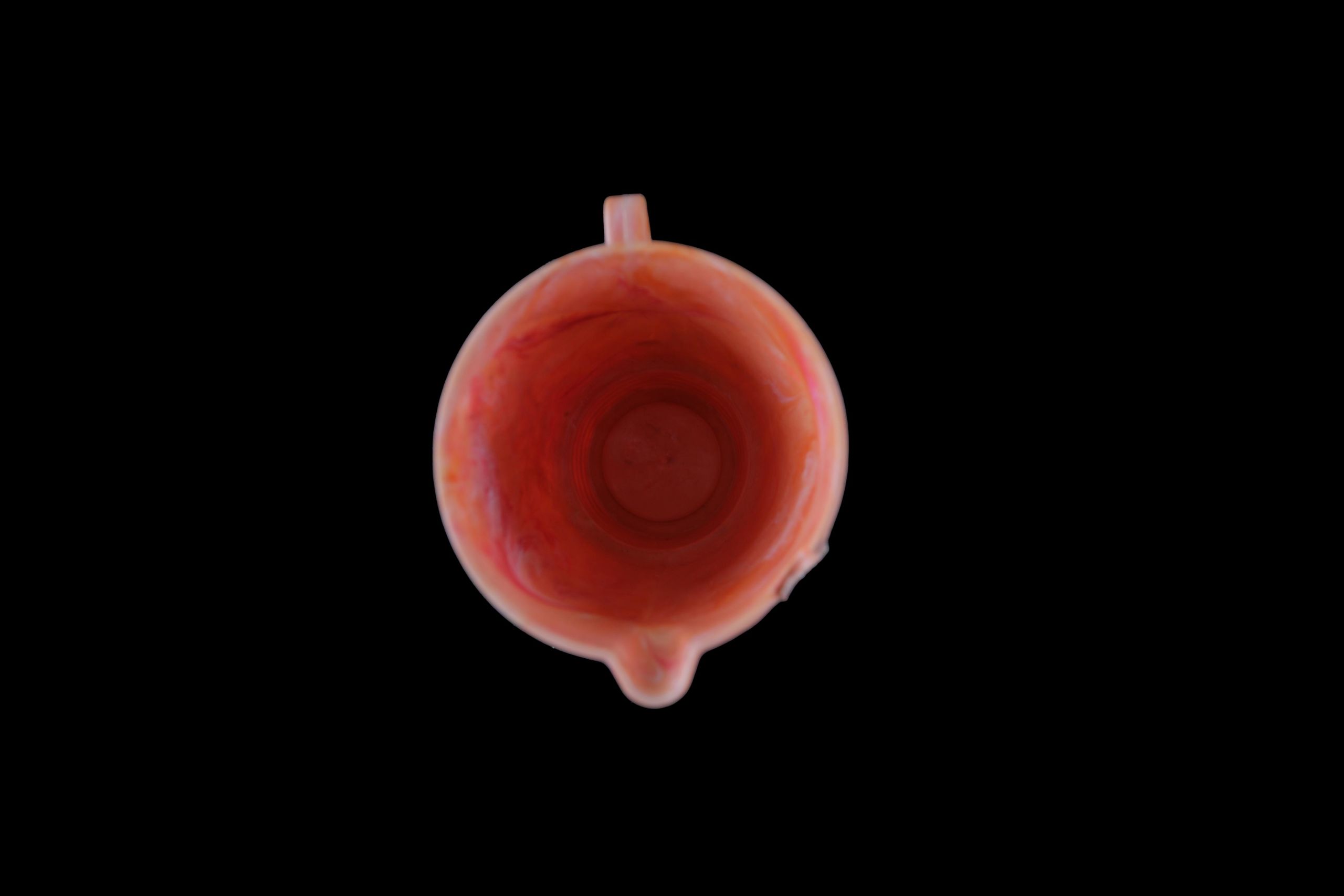
jug
jug
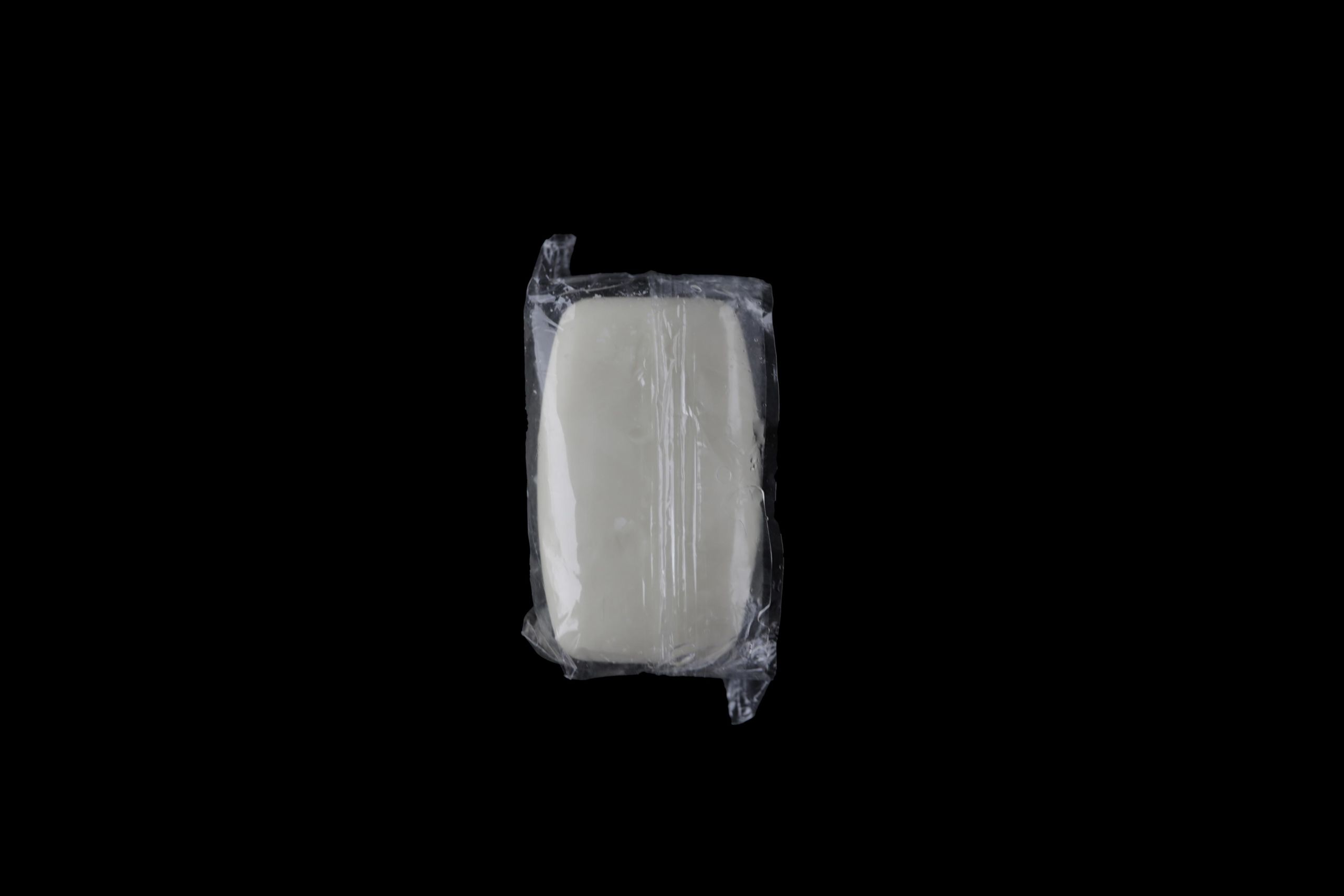
Soap
Soap
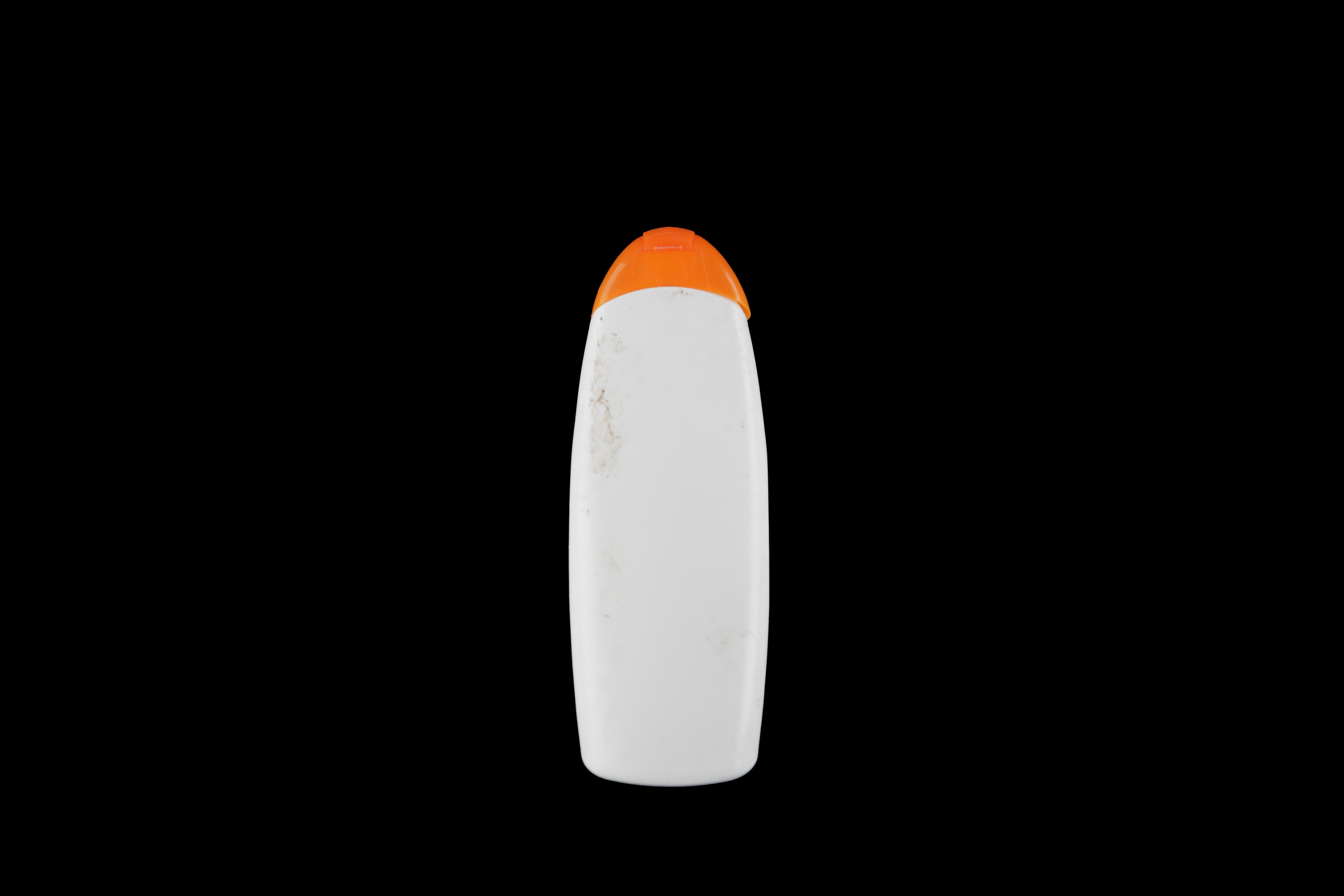
Shampoo
Shampoo

Hussain/ 9 Years
Hussain/ 9 Years
Bathing is a “luxury”!
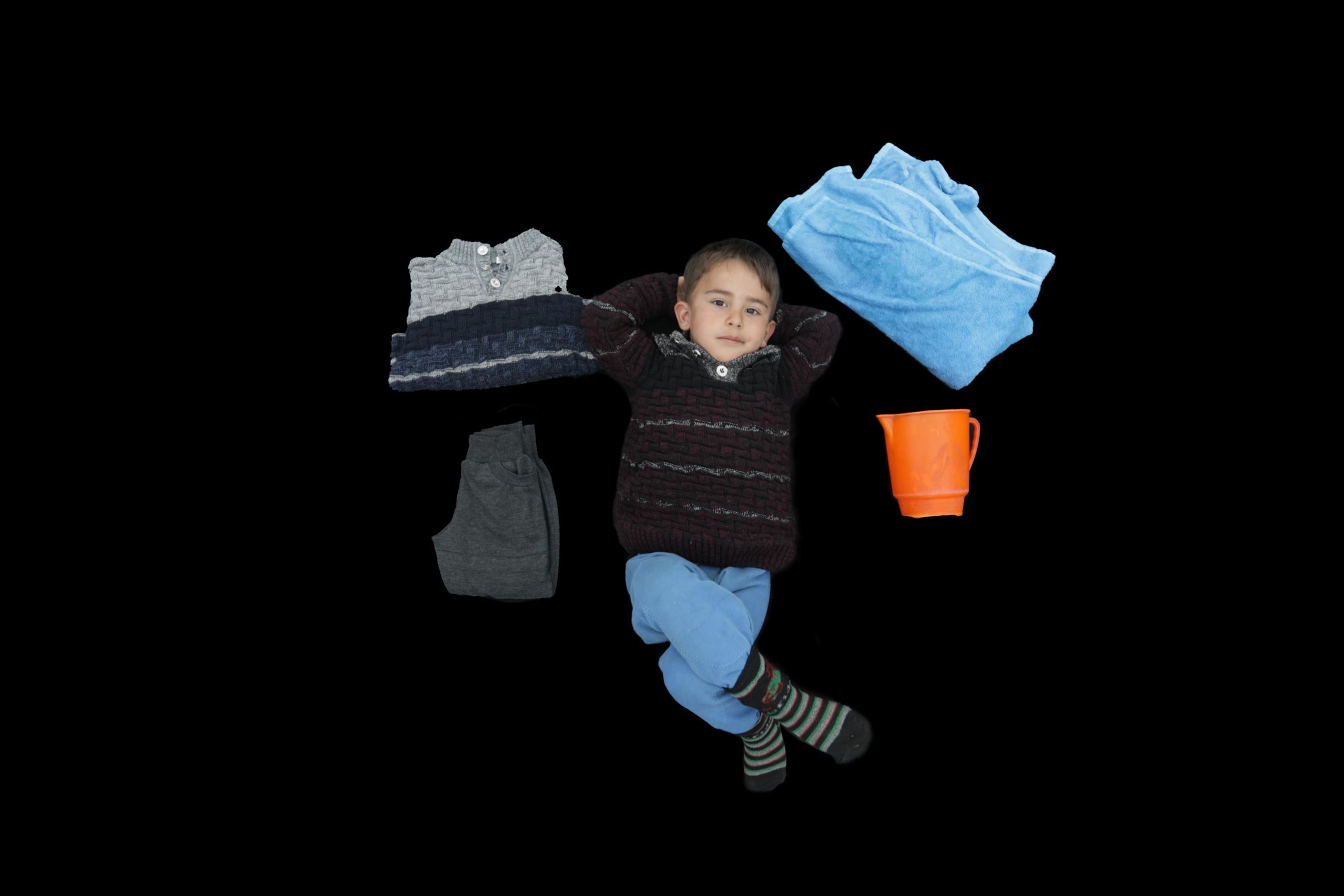
While Azaz refugee camp’s residents struggle to secure bathing for their children using the modest instruments available to them, namely a plastic jug, a soap, shampoo, and a little amount of water, the entire world is struggling against the coronavirus outbreak.
The pandemic has taken thousands of lives worldwide and over one million people have got infected to date.
However, it is the scarcity of water that made these residents consider bathing a sort of “luxury” and frequent hand-washing an almost impossible task!
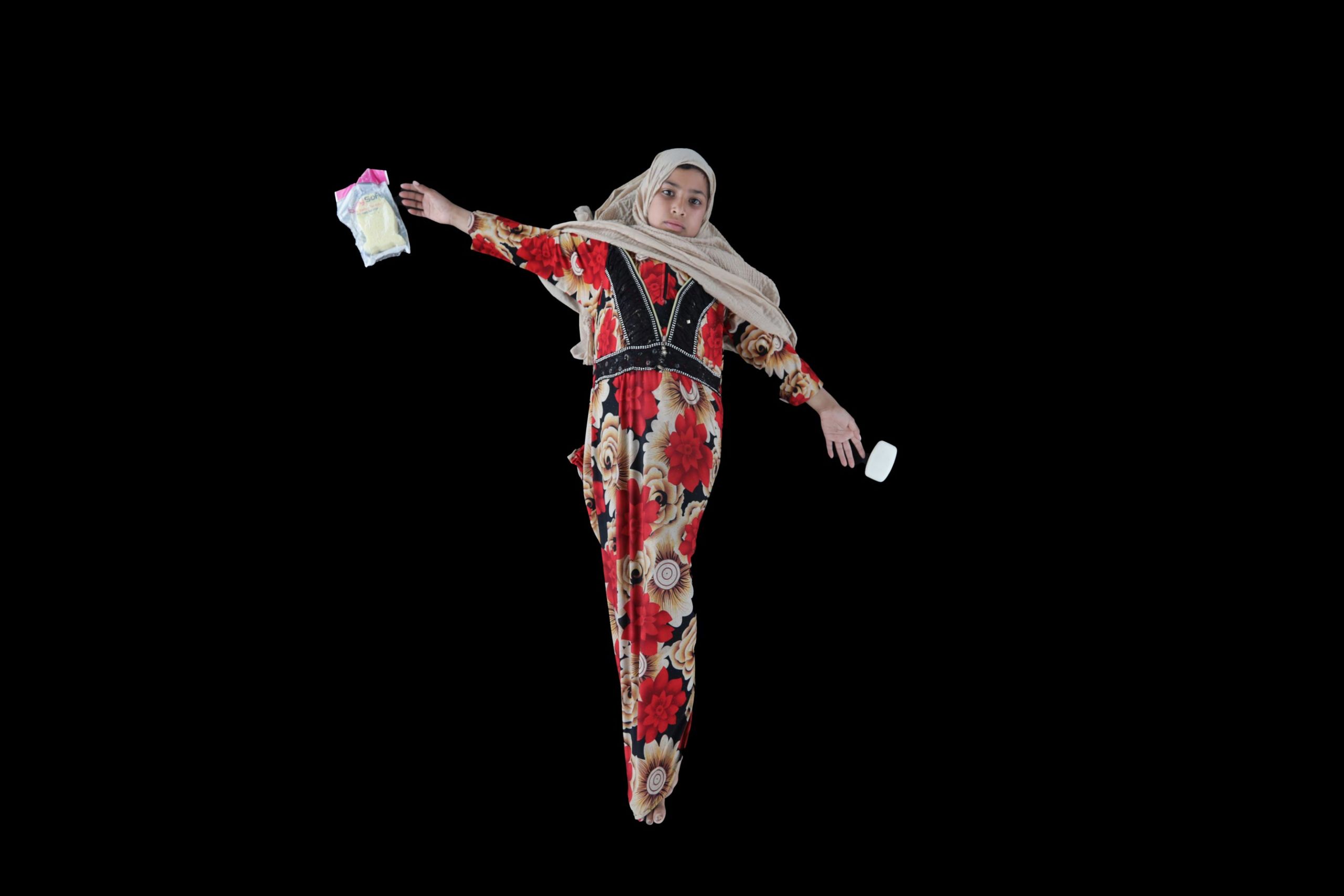
Sahar/ 10 years
Sahar/ 10 years
Sahar:
“I bathe only once a week and my mother washes our clothes manually using soap. What I hate most about taking a bath in the tent is feeling cold; it has no door unlike the bathroom we once had at our home we were displaced from.”
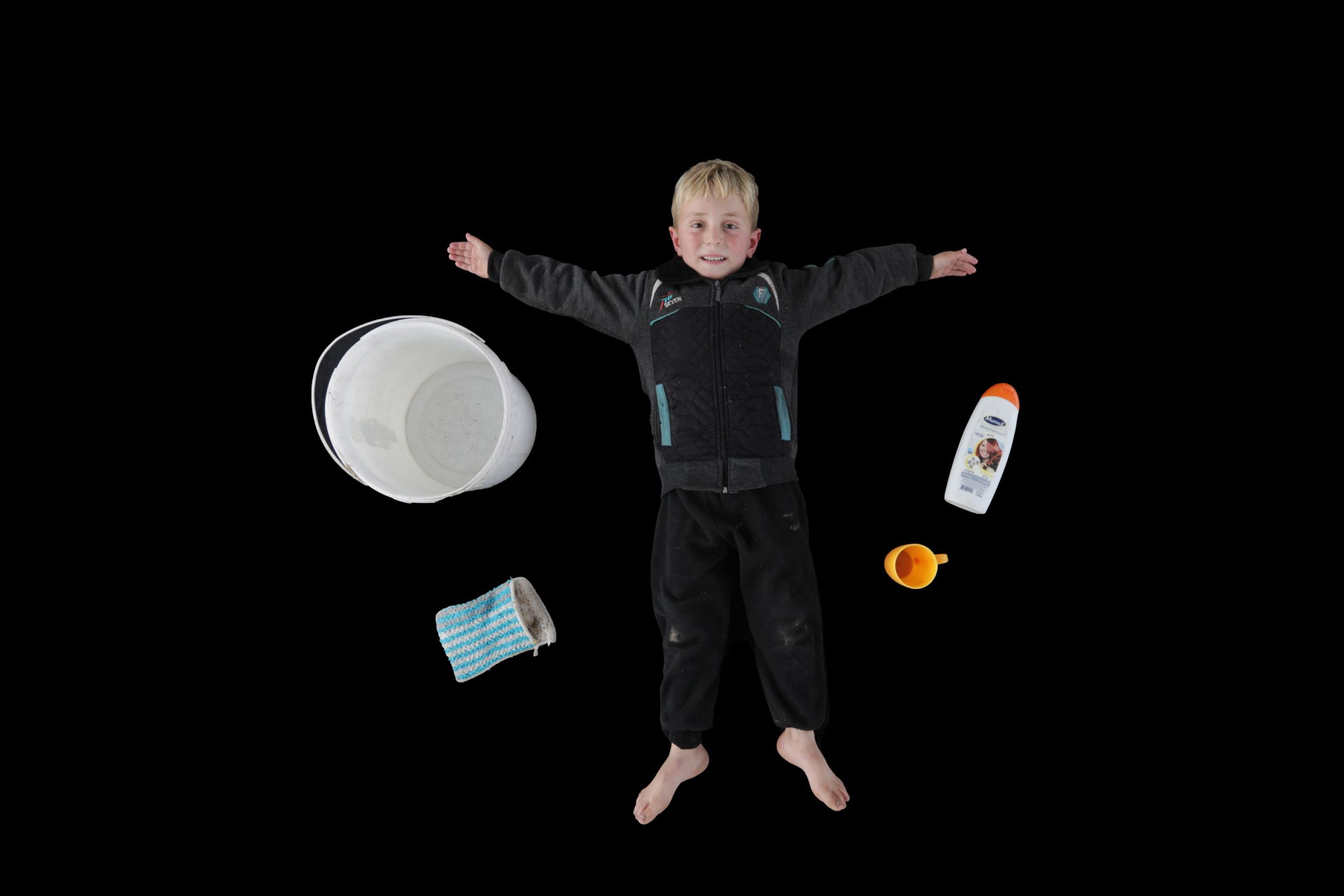
Shuʻaib/6 Years
Shuʻaib/6 Years
Shu’aib
“I take a bath only once a week on Fridays. The bathroom here is full of small stones!”
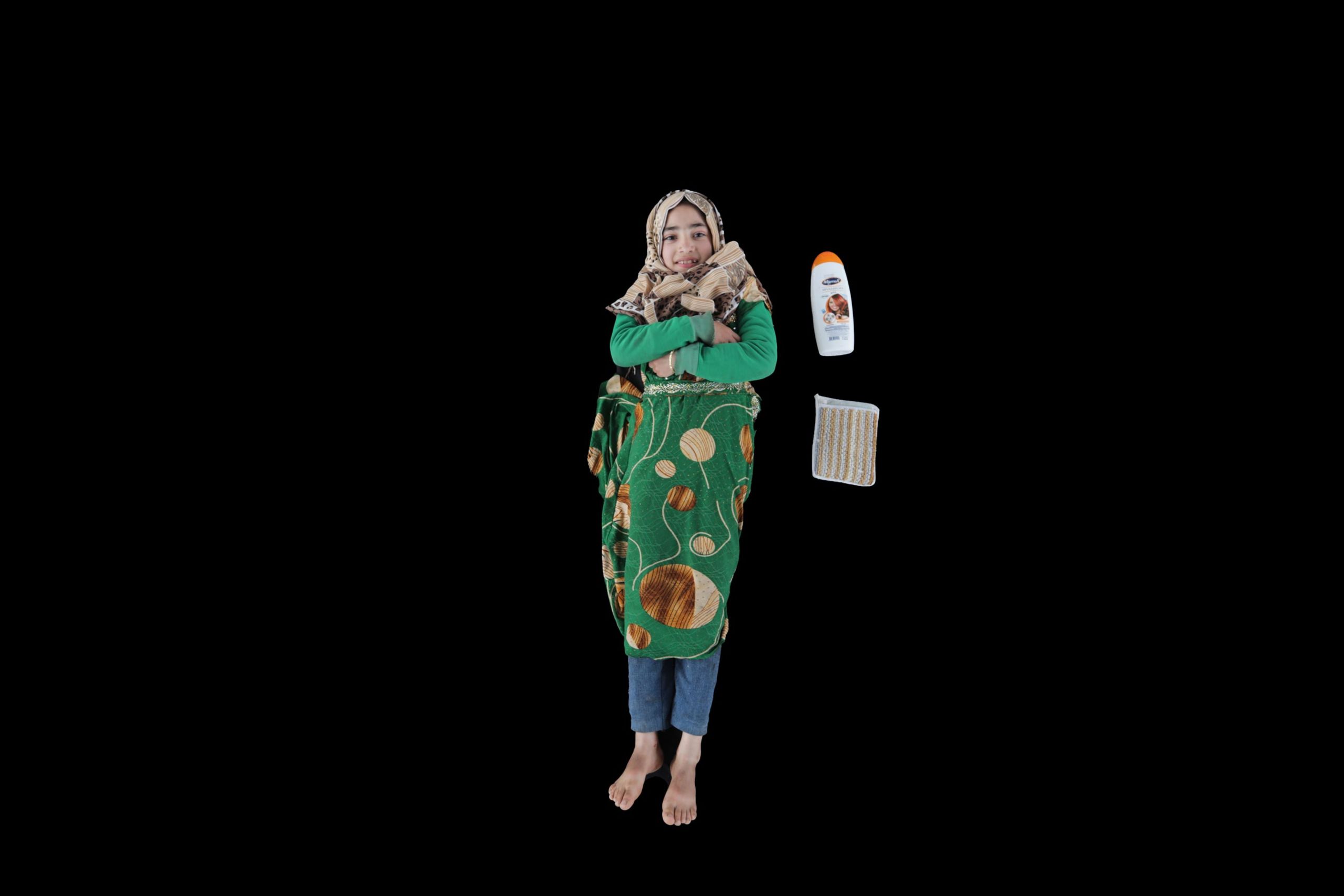
Israa/ 10 Years
Israa/ 10 Years
Israa:
“Taking a bath here makes no difference because the tent is full of dust. Once we get done with our bath, the dust covers our bodies again as if we have done nothing.”
Amidst such a crowded, chaotic scene to secure bathing water, The New York Times estimates that 1 million people in Idlib Governorate can get infected with the coronavirus and 100,000 to 120,000 people may die, of whom 10,000 people might need to be placed on ventilators. However, there are currently only 153 ventilators in the governorate.
However, this is not the only problem threatening this region, according to Abdel-Razzaq Zaqzouq, an assistant of the media officer of the Syrian-American Medical Society (SAMS) at one of Idlib’s hospitals. “Unfortunately, we do not have quarantine areas in Syria,” he explained, “If we record a coronavirus case, the situation will be disastrous.”
Michel Olivier Lacharité, manager of the MSF Emergency programmes, also confirms this reality,
“I don’t know how an elderly man or any other person who gets infected with the virus might be able to quarantine himself.”
